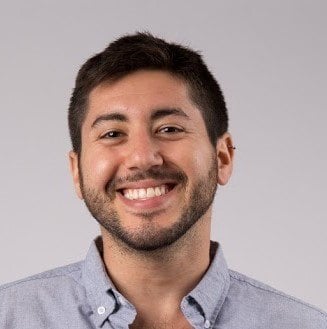
“You won’t see our history in schoolbooks,” says Michelle Ricardo, standing in the shade of an Higüero tree in a village in the heart of the Dominican Republic. “So we’re adding our story to the conversation.”
Michelle is the co-founder of Anticanon RD, a feminist artist and writer collective creating dialogues about Dominican identity, culture, discrimination and history — all through art and literature. Anticanon works to build cross-border solidarity between the Dominican Republic and Haiti, recognizing that language and xenophobia are ‘borders’ that separate the two nations sharing one island.
“We are a majority Black nation, but we perceive ourselves as white. We use this deception to survive the trauma of colonization, of enslavement. Across the Caribbean, we don’t want to be Black,” says Michelle. “Here in the Dominican Republic, we believe that only Haitians came from Africa, and we Dominicans deny our own African roots. But we are inviting people to truly see themselves, finally, and be proud of who they are.”
Each year, Anticanon creates their ‘Festival of Untold History,’ in which they pair artists and writers to create an exhibition of visual and written work exploring ‘untold’ stories: namely, those of Afro-descendent and Haitian descendent Dominicans. In a country where ‘Blackness’ is highly stigmatized and popular culture favors European ‘whiteness,’ this festival is revolutionary.
The festival presents artistic work spotlighting the culture of resistance from Black communities in both the Dominican Republic and Haiti, uniting both nations. Anticanon’s leaders take the exhibition on the road, setting up in villages across the country to engage people with a retelling of their own ‘untold history.’

The results? A slow but steady shift in how these communities see themselves, and their country.
Anticanon’s ‘Festival of Untold History’ recently landed in Los Mercedes — a community established by escaped slaves where, today, another AJWS partner organization, Así Soy, also empowers people through the art of dance. The Anticanon team set up their exhibition under an Higüero tree amid the mango groves of Los Mercedes, and dozens of adolescent girls gathered around, curious to meet these strangers.
Michele broke the ice: “History is a story that we tell. And this is a festival of stories you may not have heard — stories about our ancestors. Ancestors are everyone who came before you were here. Some of our ancestors were Black people who came from Africa. Some were aboriginal people who were already here.”
She asked the girls to examine one piece of art hanging from the Higüero tree: a shimmering landscape made entirely of colorful sequins. The piece was inspired, she says, by the poem “Haiti” by Chiqui Vicioso, an iconic Dominican sociologist and writer.

She read the poem aloud — and asks how it made them feel.
“The poem is about what Haiti once was — and it has hope that Haiti can return there once again,” answered Nathalia Adon, a leader among the Así Soy girls.
“Are you artists as well?” asks Michele — and the answer is a resounding: “Yes! We’re dancers.”
“Exactly!” says Michele. “And dancing was art that our ancestors did as well. Our Black ancestors were sick of being abused and kept as slaves. But they had no weapons. All they had was their bodies; they would dance as a form of training. Dancing was self-defense in the resistance, and eventually in the revolution. And now you are honoring their stories through your dancing.”
Collaborating for the first time, these two AJWS grantees presented a new pathway into Black pride for the girls of Los Mercedes — through art, dance, poetry and self-reflection. One that will ripple through this community and reach mothers, fathers, siblings and grandparents.
As the exhibition wrapped up, Michele and Anticanon director Lauristely Peña Solano reflected on what they witnessed under the Higüero tree: adolescent girls claiming their identity and their power.

“There is nothing more human than art. Everything else is artificial: nationalities, borders, governments, and all the struggle and problems that come from them,” said Lauristely. “So if we are fighting diseases that come from our society, our economy and our political system, we must turn inwards to heal. Art lets us access that healing. Creating and sharing art makes up our very humanity.”

